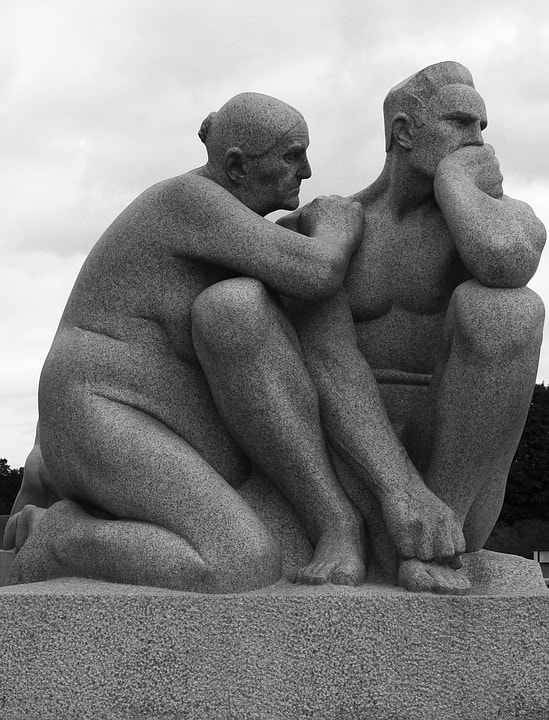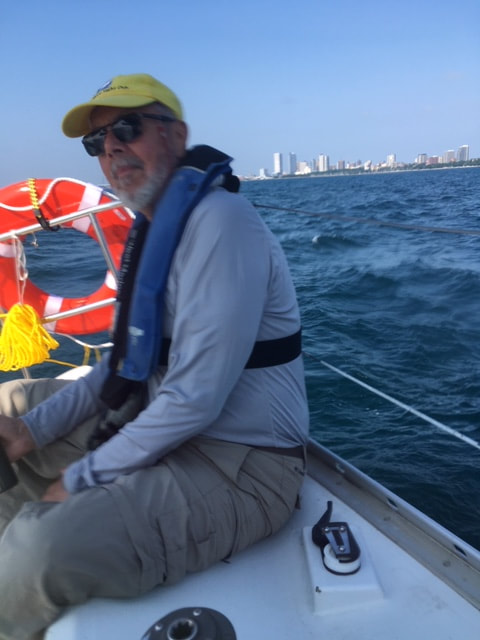I was sitting in Starbucks, fighting back tears as I read the Eulogy that George W. Bush gave at his father’s funeral. I’ll be the first to admit that I’m a crybaby. I often find myself overcome with strong emotions; mostly at tender moments. If anyone looks at pictures of me at my daughter’s recent wedding, they will see that in many of them (walking down the aisle, the father’s toast, dancing with the bride) I was teary-eyed.
But that doesn’t explain my emotional struggle over the eulogy for George H.W. Bush. This is especially puzzling because I was not much of a fan of either of the Bush men when they served as President. I figure the tears at Starbucks have more to do with where I am in life than with the Bush family. We are coming up on the anniversary of my mother’s death. And, while my father died 30 years ago, I still miss him and occasionally talk to him in my mind. I now know that as I sat reading the Bush eulogy, I was remembering the passing of my parents. I was also – at some level – brooding over the time in the unknown, but shrinking future when my own children will be standing at my funeral and telling the story of me through their eyes. I have learned, in hind sight, that the tears I shed at Starbucks came from a shared sense of humanity. Like I said, the Bush presidents weren’t my favorites, but the tearful words of the son for the father brought out a kind of kindred mourning. George W. Bush was no longer a distant politician whose policies I disdained. He was transformed into a fellow son, mourning the passing of his dad. A friend of mine – a Quaker of long standing and of deep wisdom – recently remarked that we all should learn how to “listen in tongues.” While she applied this idea to Quaker spirituality, I think it can be understood more deeply. Listening in tongues means that we strive to hear the voice - and the pain behind the voice - of those we encounter. Each person has a unique life story; one full of joy, sorrow, disappointment and pride of accomplishment. Isn’t that the lesson we are all learning through the study of Adverse Childhood Experience: that no person is just “one thing.” The present is often crowded with the ghosts of our past and if we don’t learn to listen to those ghosts, we run the risk of repeating our mistakes. By understanding my own pain over the death of my parents, I can begin to see George W. Bush in a more compassionate light. And because of his vulnerability and willingness to share his pain with the world, we gained a new insight into his heart. Listening in tongues means that we learn to hear the heart of each person; that we can hear the whisper of the ghosts still haunting them, that we can hear their fears and their dreams, no matter how faint they may be or how deeply they may be buried. The first step in learning to listen in tongues is learning to hear our own heart; to discern our true voice over those of our frightened self, seeking to cover over our pain. And once we are practiced at listening to our heart, we will find that our center is one of goodness and light. The next step in learning to listen in tongues is to acknowledge that each person we meet also has a center that is goodness and light but for some, that light is faint and the sound of goodness is drowned out by the cacophony of their fears and adverse lessons learned from their past. In the final analysis, listening in tongues is not listening at all. It is most simply, an act of love. And for that, we need no translation.
0 Comments
Your comment will be posted after it is approved.
Leave a Reply. |
AuthorMike Soika has been a community activist for more than 30 years working on issues of social and economic justice. His work for justice is anchored by his spiritual formation first as a Catholic and now as a Quaker. Pre 2018 Archives
|


 RSS Feed
RSS Feed
